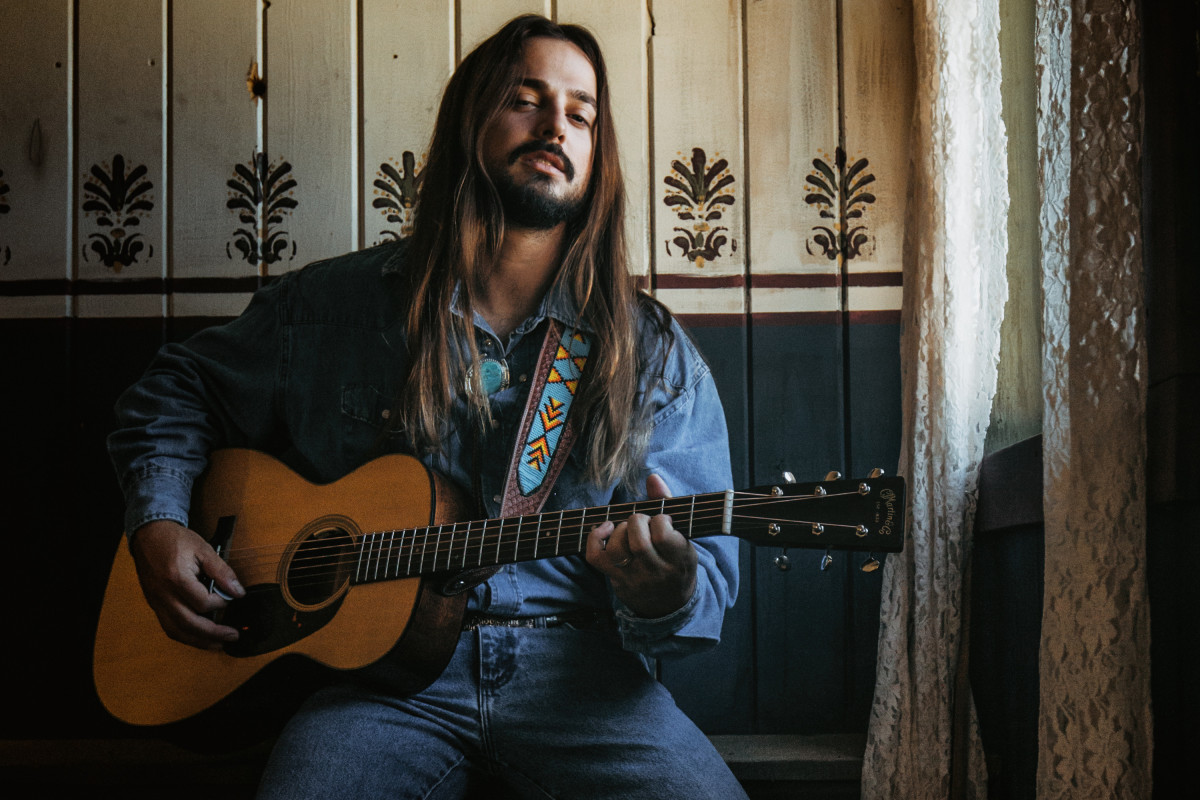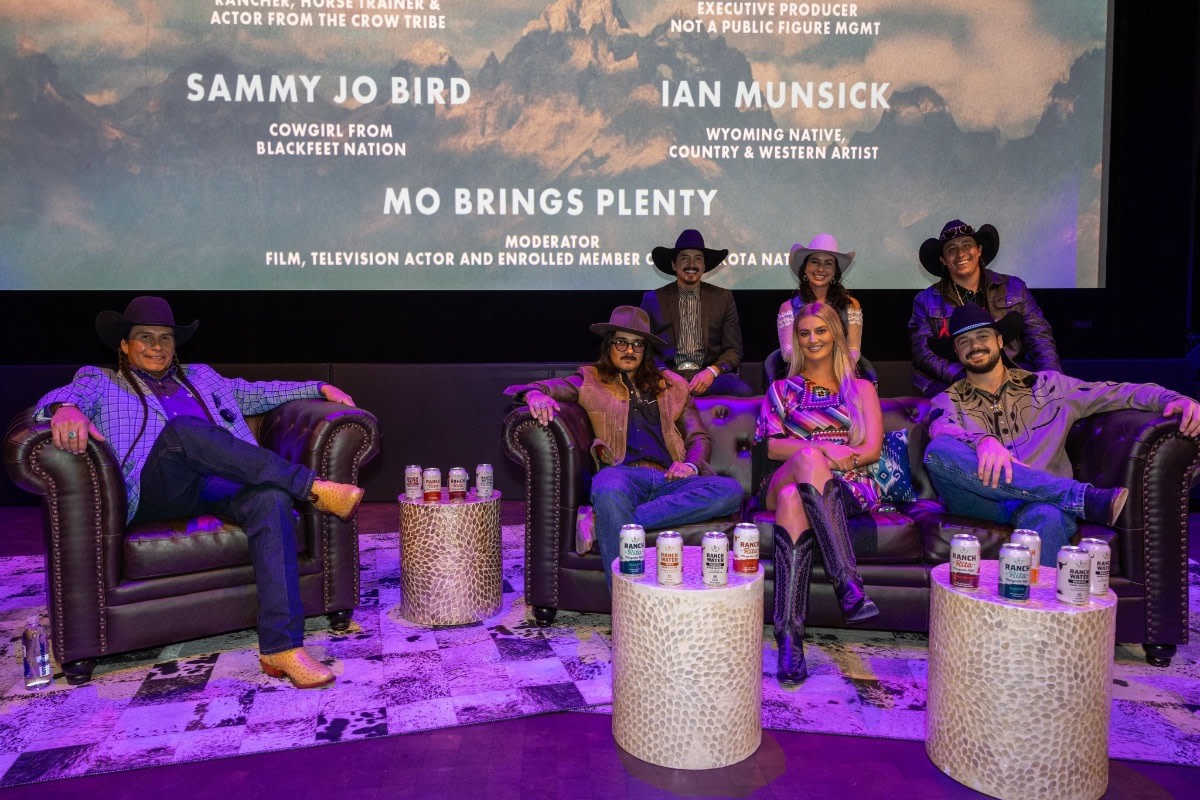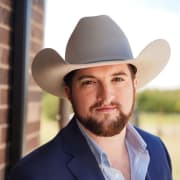Country Music Star Ian Munsick Brings to Life New Documentary Highlighting Western Culture

Ian Munsick has quickly taken the country music industry by storm. His first album, "Coyote Cry," put the Sheridan, Wyo., native on the map. His hit single "Long Live Cowgirls," which was performed with Cody Johnson, was his first Gold-certified single, solidifying his presence in the industry.
His sophomore album, "White Buffalo," is a ballad to the West and its lifestyle and culture, something Ian is more than familiar with growing up in rural Wyoming.
He took it a step further when he teamed up with his friends to create a documentary with his album's namesake called "White Buffalo: Voices of the West." The documentary focuses on ranchers, cowboys, and the Native American tribes that must come together to help each other in achieving a common goal.
The documentary is now out on all major streaming platforms, including Apple, Amazon Prime, Google Play, Microsoft and YouTube Rentals.
Ahead of the public release, we were able to sit down with Ian and discuss his tour, way of life, and, of course, the new documentary. We hope you enjoy!
Kade Kistner: Thanks so much for joining us; we're really excited to talk with you about your new documentary. On top of that, you're back on tour, so again, just thank you for taking your time and talking with Sports Illustrated and Men's Journal. Before we get started with the documentary, can you maybe tell me a little bit about what's going on with your tour? You've got a couple of shows under your belt, and you say you had a few months off, so what's in the cards? Tell me a little bit about that.
Ian Munsick: We just kicked off the Boot, Buckles and Bolos tour last weekend in Oklahoma and Texas, and we're out now in... Kentucky, and next we play in... I don't even know where we're at next, man, it's that crazy. But I'm really looking forward to it!
From day one, my goal has always been to headline as much as I can, and that's how you really build a real fanbase. It's great to go on other artists' tours, and I've been very, very lucky and blessed to go on some of the best tours over the last few years. But at the end of the day, it is very important to build your own fanbase, and so that's exactly what we're doing on this tour.
Kistner: That's awesome! We cover country music, and people are really, really high about you; they love you. I was at your show in Vegas, and it was electric. It was one of the better shows I've been to in a long time.
Munsick: I want to thank you, we take a lot of pride in the live show, man, and my goal is to always make you proud. We want to make sure that at least one person leaves thinking that that's the best live concert that they've ever been to. We always try and get out there and find them every single night.

Kistner: So, moving into the documentary, it's named after your sophomore album, "White Buffalo." I believe it premiered on December 6. It kind of talks about the relationship between cowboys, ranchers, and Native Americans and how they all have to come and work together, which I think is really a kind of special message. Especially in this time that we live in and how people of different backgrounds still come together and work with each other to fulfill a common goal. Can you tell me a little bit about the inspiration behind the documentary and what led you to want to do this?
Munsick: My music has always had a huge influence on where I am from in Wyoming, Montana, and the Northern Rocky Mountain region. A huge part of the culture out there is cowboy culture. But there is a big piece of cowboy culture that has been influenced by Native American culture. But you hardly ever hear about it; it's hardly brought up.
When you think about the cowboy, the first thing that comes to mind is a white man. But where I am from, Native Americans are some of the best, handiest cowboys out there. Growing up around the Crow reservation, I had the privilege of seeing firsthand the Native American influence on ranchers and the land and how we respect the land out there. There are many commonalities between Native Americans and cowboys. In fact, they are the same people. That's a huge misinterpretation by the rest of the world. As a country music artist being from there, I have a responsibility to educate not just my audience but the mass country music world that Native Americans are cowboys, and they have a huge influence on my music.
Kistner: Talking about this, the Native American influence, we have a mutual friend in Mo Brings Plenty, and over the course of the last few months, Mo has been instrumental in educating me on this theme, and same thing with Dougie Hall. Both of them worked on this documentary with you, and I don't know if there are a whole lot of people who could be better ambassadors for this documentary.
Can you kind of tell me a little bit about how you kind of linked up with Mo and Dougie and these other amazing people and how you were able to get them into this project?

Munsick: Yeah, so it all started with my buddy Stephen Yellowtail, who I grew up with, and our dads were friends, so it's a bit of a generational thing with our two families. Stephen is a horse trainer, a rancher, a cowboy and an actor. He was working on a Kevin Costner film, and Dougie Hall happened to be on that crew as well. My wife was Facetiming with Stephen on doing a documentary about Native American cowboys, and Dougie Hall was standing right next to Stephen. And he said if you don't know this man you should, he is a cowboy and bronc rider, he's hilarious and he's the man. So that's how we kind of got roped in with Dougie.
The bottom line is the cowboy, and the Native American world is very small. Once you get one ambassador, more will come, especially with a project like this that hones in on a lifestyle that has never been captured in this type of media and that really spreads a positive light. I think a lot of people just wanted to hop on and help out.
Kistner: The crew that you guys were able to assemble, I don't know if there could have been a better team on that, right? It also speaks to who you are and what you represent.
However, it premiered in Vegas on December 6 during the National Finals Rodeo, which is an awesome time to release something like this. So, what has the reception been that you've seen? And then, what are some plans for this documentary moving forward here in 2024?
Munsick: Yeah, man, the premiere during NFR was awesome. It was the ideal crowd to premiere it for because they all know exactly what we're talking about because they all know exactly who you are and the heritage behind it. I was sure that even though there were only a few people there from where I'm from, there were people there from Texas that work with Hispanic and Mexican cowboys. There's people there from all over the country that know about the different types of heritages that cowboys come from, so they can relate. So, we knew that was going to be an easy ice-breaker for the documentary and where we premiered it.
Now, Nashville, we didn't know, and that was kind of the real risk because Nashville doesn't have any idea about that lifestyle or the Native American influence on our life. So that was the one that we were like, 'Okay, well, Nashville understands that.'
Nashville doesn't have any idea, and those that don't can hopefully be educated; then we know that the rest of the country music world can hopefully be as well. Same thing with people that don't listen to country music and just want to learn more about it; they will have that as well.
Kistner: Kind of wrapping up a little bit here; one thing I like to ask everyone that I interview is: is there a cause or a foundation that you want to kind of shed some light on?
Munsick: Man, man, the main thing, and it doesn't go to one cause, but for me, it's land. Conservation has always been a huge piece of my music because it's a huge piece of Wyoming and the West and general land changes. If you can keep the public land and make it easier for ranchers, farmers, and people in agriculture to do their job, to help keep the beautiful land of the West as beautiful as it is right now. What I always try to preach is to just help keep the land beautiful.
Once again, if you would like to view "White Buffalo: Voices of the West," it is now available to the public on every major streaming service. Thank you to Ian Munsick and his crew for making this project and interview possible.
